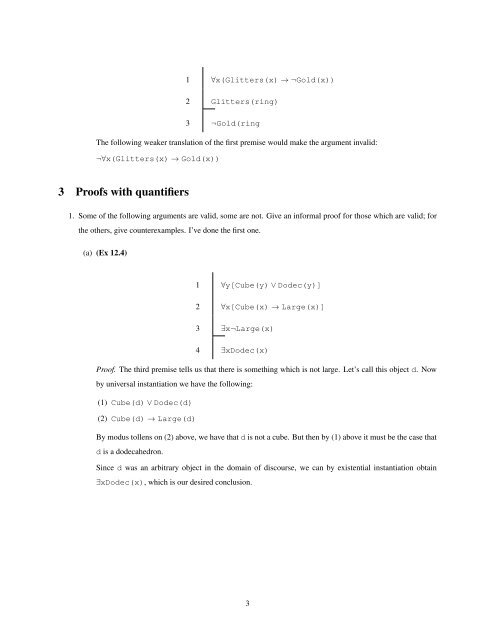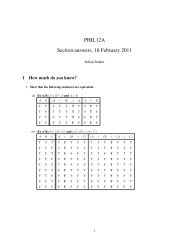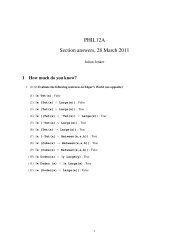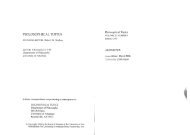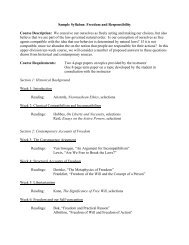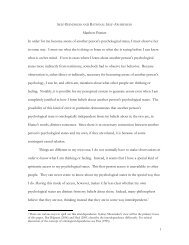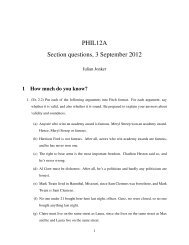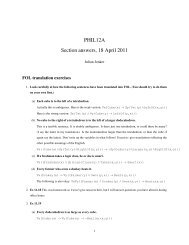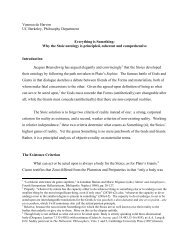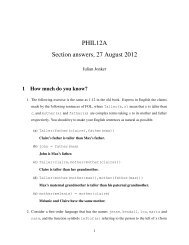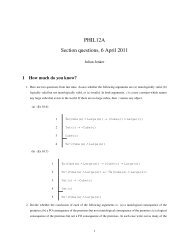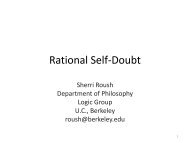PHIL12A Section answers, 20 April 2011 - Philosophy
PHIL12A Section answers, 20 April 2011 - Philosophy
PHIL12A Section answers, 20 April 2011 - Philosophy
You also want an ePaper? Increase the reach of your titles
YUMPU automatically turns print PDFs into web optimized ePapers that Google loves.
1 ∀x(Glitters(x) → ¬Gold(x))2 Glitters(ring)3 ¬Gold(ringThe following weaker translation of the first premise would make the argument invalid:¬∀x(Glitters(x) → Gold(x))3 Proofs with quantifiers1. Some of the following arguments are valid, some are not. Give an informal proof for those which are valid; forthe others, give counterexamples. I’ve done the first one.(a) (Ex 12.4)1 ∀y[Cube(y) ∨ Dodec(y)]2 ∀x[Cube(x) → Large(x)]3 ∃x¬Large(x)4 ∃xDodec(x)Proof. The third premise tells us that there is something which is not large. Let’s call this object d. Nowby universal instantiation we have the following:(1) Cube(d) ∨ Dodec(d)(2) Cube(d) → Large(d)By modus tollens on (2) above, we have that d is not a cube. But then by (1) above it must be the case thatd is a dodecahedron.Since d was an arbitrary object in the domain of discourse, we can by existential instantiation obtain∃xDodec(x), which is our desired conclusion.3


